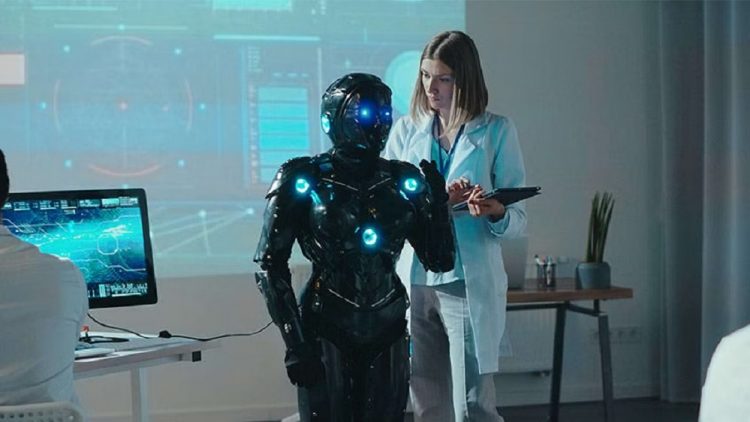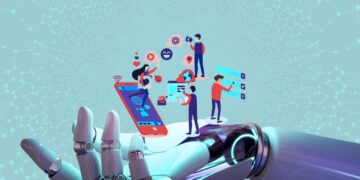The future of robotics and artificial intelligence (AI) is rapidly approaching, with the potential to revolutionize various aspects of our lives, from the way we work to the way we live. Advances in robotics and AI technologies have already led to significant improvements in manufacturing, healthcare, transportation, and many other industries. However, these developments also raise important ethical, societal, and economic questions that must be addressed to ensure that the benefits of these technologies are shared fairly and equitably.
In this article, we will explore the future of robotics and Artificial Intelligence, the potential benefits and challenges that come with these technologies, and the ethical considerations that must be taken into account as we move forward. We will also discuss the steps that can be taken to ensure that these technologies are used in a responsible and ethical manner, protecting individuals’ privacy and security and addressing potential biases and discrimination.
Advancements in Robotics and AI
The advancements in robotics and AI are changing the way we live and work. The integration of machine learning and other advanced algorithms has made it possible for machines to learn from their environment and make decisions on their own. This is a significant step towards creating autonomous systems that can operate without human intervention.
The development of sensors, actuators, and other hardware components has also contributed to the progress of robotics. These components allow robots to interact with their environment and perform tasks that were once impossible or difficult for humans.
Moreover, the use of 5G networks has significantly improved the capabilities of robots and AI systems. With faster and more reliable connectivity, robots can communicate with each other and with humans in real time, making it possible to perform complex tasks in a more efficient and effective manner.
Applications in Various Industries
The applications of robotics and AI are vast and varied. In manufacturing, robots are already being used to perform tasks such as welding, painting, and assembly. They are also used in logistics and transportation, where they are used to move goods and products around warehouses and factories.
In healthcare, robots and AI systems are being used to improve patient care and outcomes. For example, robots can be used to perform minimally invasive surgeries, reducing the risk of complications and speeding up recovery times. AI-powered diagnostic systems are also being developed, which can analyze medical images and other data to help doctors make more accurate diagnoses and treatment decisions.
The use of robotics and AI in education is also gaining traction. AI-powered systems can personalize learning experiences and provide targeted support to students, revolutionizing the way education is delivered. For example, AI systems can analyze a student’s learning style and adapt lesson plans and teaching materials to suit their individual needs, helping them to learn more effectively and achieve better outcomes.
Impact on the Job Market and Society
The future of robotics and artificial intelligence (AI) is expected to have a significant impact on the job market and society as a whole. While these technologies have the potential to bring about increased efficiency, productivity, and economic growth, they also raise concerns about job displacement, inequality, and social upheaval.
Impact on the Job Market
One of the main concerns surrounding the future of robotics and artificial intelligence is their potential to automate many jobs currently performed by humans. While automation has been a part of the job market for decades, advances in robotics and AI could lead to widespread job displacement in various sectors, including manufacturing, transportation, and customer service.
According to a report by McKinsey Global Institute, up to 800 million jobs worldwide could be automated by 2030, with a potential displacement of up to 375 million workers. This could lead to significant job losses, particularly for those in low-skilled and routine-based occupations.
However, the report also suggests that automation could lead to the creation of new jobs in areas such as healthcare, education, and renewable energy and that the net impact on employment will depend on how well individuals and organizations are able to adapt to these changes.
Impact on Society
The impact of robotics and AI on society goes beyond just the job market. These technologies could also lead to significant changes in the way we live and interact with each other. For example, self-driving cars could lead to a decrease in traffic accidents and increased mobility for individuals with disabilities or limited access to transportation. However, they could also lead to increased congestion and inequality if they are only accessible to those who can afford them.
AI-powered healthcare systems could lead to improved diagnosis and treatment, but they could also raise concerns about privacy and data security. Similarly, AI-powered criminal justice systems could lead to more efficient and fair outcomes, but they could also perpetuate biases and discrimination if the algorithms are trained on biased data.
Addressing the Impacts
To address the potential impacts of robotics and AI on the job market and society, it is essential to take a proactive approach. This includes investing in education and training programs to help workers adapt to the changing job market, ensuring that individuals have access to affordable healthcare and transportation, and implementing regulations and policies to address potential biases and discrimination in AI systems.
It is also important to involve a diverse range of stakeholders in discussions about the future of robotics and artificial intelligence, including workers, policymakers, business leaders, and members of marginalized communities. By working together, we can ensure that the benefits of these technologies are shared fairly and equitably and that the potential negative impacts are addressed.
Ethical and Societal Implications
The increasing use of robotics and AI also raises important ethical and societal questions. For example, there is concern that the widespread adoption of automation could lead to a loss of privacy and security. As AI systems become more sophisticated, they will be able to analyze increasingly large amounts of data, including personal and sensitive information.
This raises questions about who has access to this data, and how it is used. It is important to ensure that individuals’ privacy and security are protected and that AI systems are used in a responsible and ethical manner.
Another ethical concern is the potential for bias in AI systems. Machine learning algorithms are only as good as the data they are trained on, and if this data is biased, the algorithm will also be biased. This could lead to discriminatory outcomes in areas such as hiring, lending, and criminal justice. It is important to ensure that AI systems are trained on diverse and unbiased data to avoid perpetuating existing societal biases and inequalities.
Protecting Privacy and Security
The future of robotics and artificial intelligence (AI) has the potential to bring about significant improvements in many areas of our lives, from healthcare to transportation. However, these technologies also raise concerns about privacy and security, as they often involve the collection and use of large amounts of personal data.
Protecting Privacy
One of the main concerns surrounding the use of robotics and AI is the potential for these technologies to infringe on individuals’ privacy rights. For example, AI-powered surveillance systems could be used to monitor individuals without their knowledge or consent, raising concerns about the right to privacy.
To address these concerns, it is important to ensure that individuals have control over their personal data and that any data collection is done in a transparent and accountable manner. This includes implementing strong data protection laws and regulations, such as the General Data Protection Regulation (GDPR) in the European Union, that require organizations to obtain individuals’ consent before collecting or using their personal data.
It is also important to educate individuals about their rights and provide them with tools to manage their personal data effectively. This includes providing clear and concise privacy policies, as well as easy-to-use privacy settings that allow individuals to control how their data is collected and used.
Protecting Security
Another concern related to the use of robotics and AI is the potential for these technologies to be hacked or compromised, leading to significant security breaches. For example, AI-powered autonomous vehicles could be vulnerable to cyber attacks, leading to potential safety risks for passengers and other drivers on the road.
To address these concerns, it is important to implement strong cybersecurity measures and standards that protect these technologies from potential threats. This includes implementing encryption and other security protocols to protect data and systems from unauthorized access, as well as conducting regular vulnerability assessments and testing to identify potential weaknesses.
It is also important to ensure that organizations responsible for developing and implementing these technologies take responsibility for their security. This includes investing in cybersecurity research and development, as well as providing training and resources to employees to help them identify and mitigate potential security risks.
Read Also: Artificial Intelligence In Cybersecurity: An Introductory Guide
Conclusion – The Future of Robotics and Artificial Intelligence
The future of robotics and Artificial Intelligence is exciting, but it also raises important ethical, societal, and economic questions. While the widespread adoption of automation could lead to significant job losses and social upheaval, it also has the potential to improve productivity, efficiency, and economic growth.
To ensure that the benefits of automation are distributed fairly and that the ethical and societal implications are addressed, it is essential that governments, businesses, and individuals work together. This involves implementing strong data protection regulations, ensuring transparency and accountability in AI systems, and designing these systems with ethical considerations in mind.
Ultimately, the future of robotics and Artificial Intelligence will be shaped not only by technology but also by our collective actions and decisions. By working together, we can ensure that these technologies are used in a responsible and ethical way, creating a brighter and more equitable future for all.





























